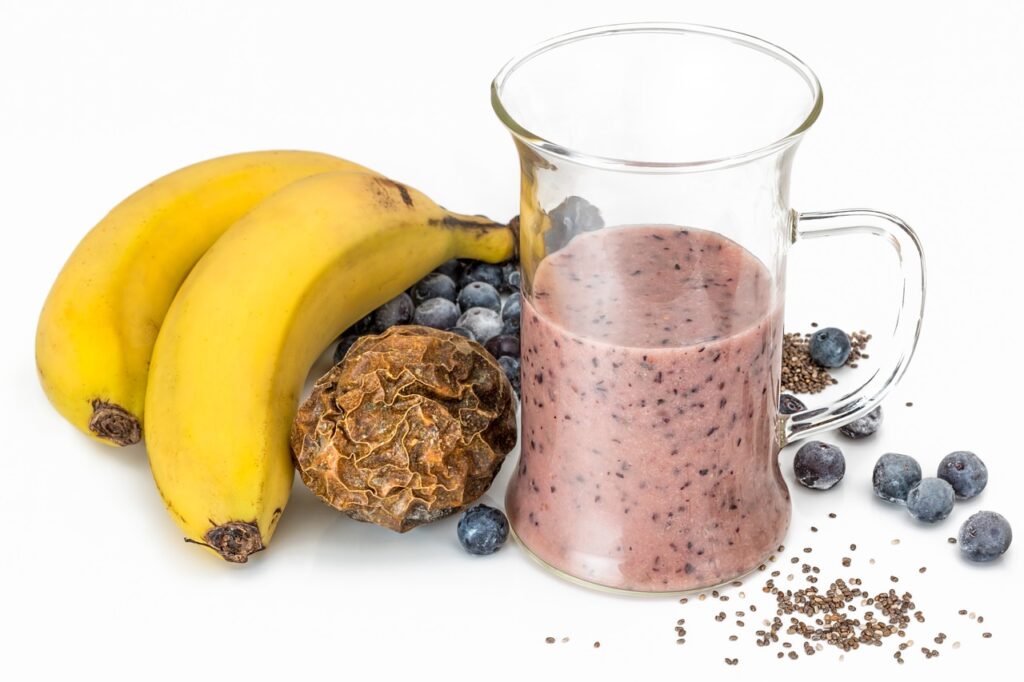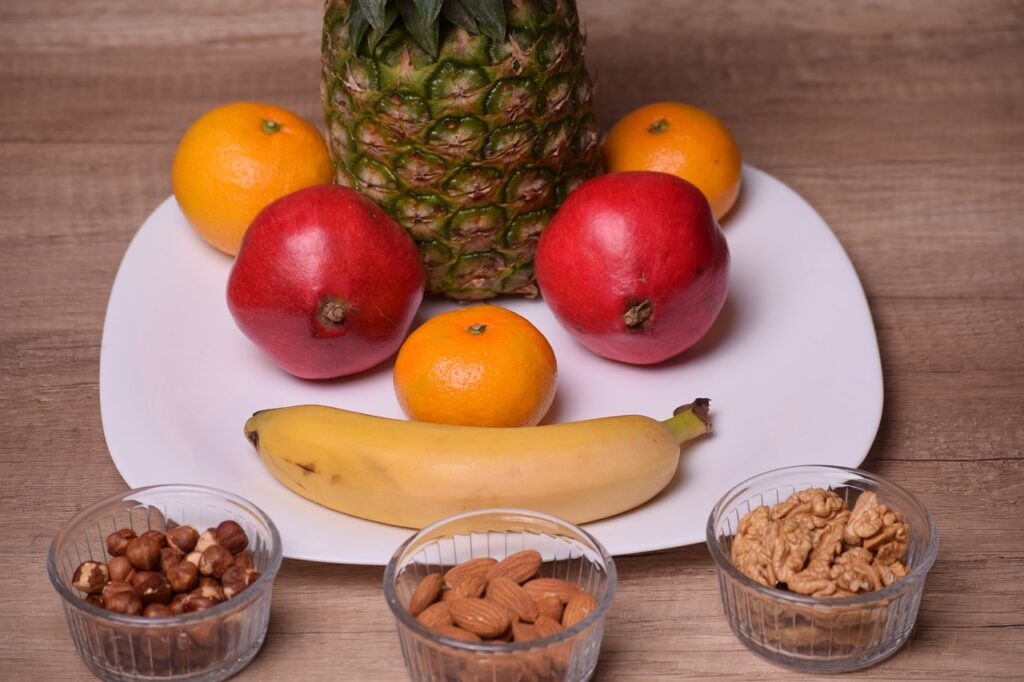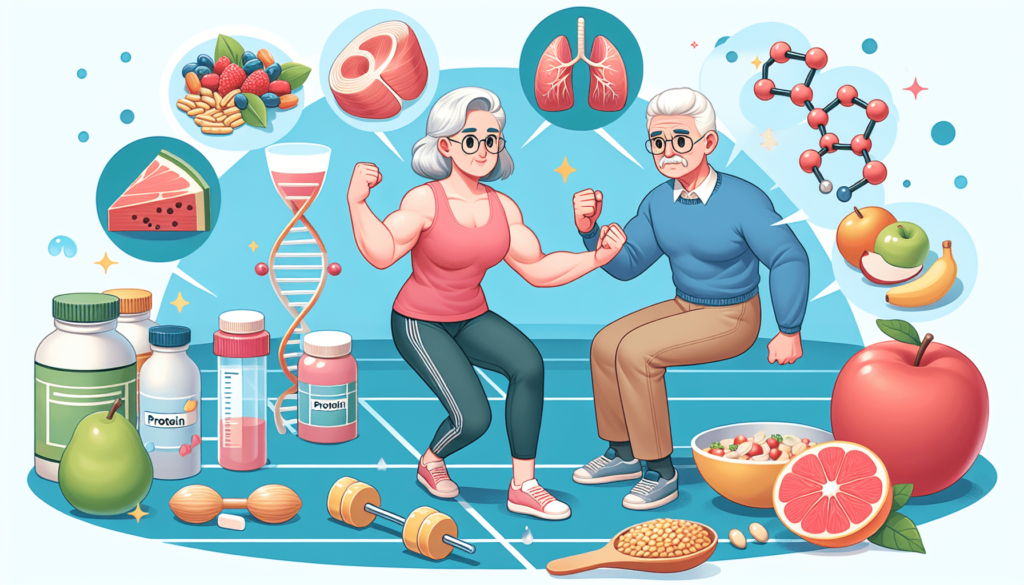In the quest to maintain strength and vitality as we age, one crucial element often overlooked is the importance of protein in our diet. For seniors looking to combat the effects of Sarcopenia, the gradual loss of muscle mass, understanding what protein is best for muscle building becomes paramount. With countless options and products available, it can be overwhelming to navigate the sea of information. Fortunately, this article aims to provide clarity by exploring the different types of protein and their effectiveness in helping seniors build muscle. By the end, you will be equipped with the knowledge needed to make informed decisions about your protein intake and embark on a journey towards a stronger, healthier you.

This image is property of pixabay.com.
Types of Protein
When it comes to building muscle and maintaining overall health, protein is an essential nutrient for seniors. Protein provides the building blocks for muscle growth, repair, and maintenance. However, with so many different types of protein available, it can be overwhelming to determine which one is best for seniors. In this article, we will explore the benefits, recommended dosages, potential side effects, and other considerations for whey protein, casein protein, soy protein, pea protein, and egg protein. Additionally, we will discuss protein timing and distribution, as well as the importance of protein quality. Lastly, we will touch upon protein supplements, including tips on choosing the right protein supplement and consulting with healthcare professionals for personalized advice.
Whey Protein
Whey protein is one of the most popular protein supplements on the market, and for good reason. It is a complete protein, meaning it provides all nine essential amino acids that our bodies cannot produce on their own. This makes whey protein an excellent choice for seniors looking to build and maintain muscle mass. Additionally, whey protein is quickly digested and absorbed by the body, making it an ideal option for post-workout recovery.
In terms of recommended dosage, it is best to consult with a healthcare professional who can provide personalized advice based on individual needs and goals. As for potential side effects, some individuals may experience digestive issues such as bloating or gas. However, these side effects are generally mild and can be minimized by starting with a lower dosage and gradually increasing it over time.
Casein Protein
Casein protein, like whey protein, is derived from milk. However, it differs in terms of digestion and absorption. Casein protein is digested more slowly, resulting in a sustained release of amino acids into the bloodstream. This slow digestion makes casein protein an excellent choice for seniors who are looking for prolonged muscle protein synthesis and prolonged satiety.
When it comes to recommended dosage, similar to whey protein, it is best to consult with a healthcare professional for personalized advice. As for potential side effects, casein protein is generally well-tolerated. However, some individuals may experience digestive discomfort, such as bloating or constipation, especially if they have lactose intolerance or sensitivity.
Soy Protein
Soy protein is a popular choice for vegetarians and vegans, as it is a plant-based protein source. It is also a complete protein, providing all essential amino acids. Soy protein has been shown to have comparable muscle-building effects to animal-based proteins, making it a suitable option for seniors looking to build and maintain muscle mass.
Similar to other types of protein, the recommended dosage may vary depending on individual needs and goals. It is always best to consult with a healthcare professional for personalized advice. As for potential side effects, soy protein is generally well-tolerated. However, some individuals may have an allergy or intolerance to soy, so it is important to be mindful of any adverse reactions.

This image is property of pixabay.com.
Pea Protein
Pea protein is another plant-based protein source that has gained popularity in recent years. It is derived from yellow split peas and is a great option for individuals with allergies or sensitivities to other protein sources like dairy or soy. Pea protein is easily digestible and hypoallergenic, making it a suitable choice for seniors with digestive issues or food allergies.
The recommended dosage of pea protein may vary depending on individual needs. It is always advisable to consult with a healthcare professional for personalized advice. As for potential side effects, pea protein is generally well-tolerated. However, some individuals may experience digestive discomfort, such as bloating or gas, especially if it is consumed in large quantities or too quickly.
Egg Protein
As the name suggests, egg protein is derived from eggs and is another complete protein source. It contains all essential amino acids, making it an effective option for muscle building and maintenance. Egg protein is also easily digestible, making it a suitable choice for seniors with digestive issues.
When it comes to the recommended dosage, it is best to consult with a healthcare professional for personalized advice. As for potential side effects, egg protein is generally well-tolerated. However, individuals with egg allergies should avoid consuming egg protein or any products that contain egg as an ingredient.

This image is property of pixabay.com.
Protein Timing and Distribution
In addition to considering the types of protein, it is important to consider the timing and distribution of protein intake for optimal muscle building and recovery. Research suggests that consuming protein before and after workouts can enhance muscle protein synthesis. Pre-workout protein helps provide the necessary amino acids for muscle repair and growth, while post-workout protein aids in the recovery process.
Furthermore, distributing protein intake throughout the day is beneficial for seniors. Instead of consuming a large amount of protein in one meal, it is recommended to spread protein intake evenly across meals and snacks. This allows for a continuous supply of amino acids for muscle maintenance and repair throughout the day.
Lastly, it is important to prioritize protein quality. While quantity is important, the quality of protein sources also plays a significant role in muscle building and overall health. Complete proteins like whey, casein, soy, pea, and egg protein contain all essential amino acids, making them ideal choices. It is advisable to choose lean protein sources and minimize processed meats to optimize overall nutrient intake.
Other Considerations for Seniors
When it comes to protein intake for seniors, there are a few additional considerations to keep in mind. As we age, our bodies may require adjustments in protein intake to support muscle maintenance and prevent age-related muscle loss, known as sarcopenia. Personalized advice from a healthcare professional can help determine the appropriate protein intake based on individual needs, health conditions, and activity levels.
In general, the recommended daily protein intake for seniors ranges from 1.0 to 1.5 grams of protein per kilogram of body weight. However, this may vary depending on individual factors, such as muscle mass, activity level, and overall health. Consulting with a healthcare professional can help determine the specific protein needs and ensure optimal results.
In addition to protein intake, seniors should also focus on incorporating resistance exercises into their routine. Combining protein intake with regular resistance training can enhance muscle protein synthesis and improve overall muscle strength and function. It is essential to consult with a qualified exercise professional or physical therapist to develop a safe and effective exercise program tailored to individual needs.
Lastly, it is important to prioritize overall nutrient intake. Protein is just one component of a healthy diet, and seniors should strive for a balanced and varied eating plan that includes a wide range of nutrients. Fruits, vegetables, whole grains, and healthy fats should also be included to support overall health and well-being.

Protein Supplements
Protein supplements can be a convenient and effective way to meet the increased protein needs of seniors. However, choosing the right protein supplement is essential for optimal results. When selecting a protein supplement, it is important to consider factors such as protein source, flavor preferences, and dietary restrictions.
Protein powders are a popular choice among seniors, as they offer versatility and can be easily incorporated into various recipes or mixed into shakes. Ready-to-drink (RTD) protein shakes are another option, providing a convenient and portable way to consume protein on-the-go. When selecting protein supplements, it is advisable to choose products that are specifically marketed as senior-friendly, as they often cater to the unique nutritional needs of older adults.
Consulting with a healthcare professional is crucial when considering protein supplements. They can provide personalized advice, assess individual nutritional needs, and recommend specific products or brands that align with individual goals and health conditions.
Conclusion
In conclusion, protein plays a crucial role in muscle building and maintenance for seniors. The different types of protein, such as whey, casein, soy, pea, and egg protein, offer unique benefits and can be incorporated into a senior’s diet to support muscle health. However, it is important to consider individual needs, goals, and potential side effects when selecting a protein source and determining the appropriate dosage.
Timing and distribution of protein intake throughout the day, along with prioritizing protein quality, can further optimize muscle building and recovery. Seniors should be mindful of their overall protein intake and consider adjustments based on age-related factors, such as sarcopenia.
Protein supplements can be a convenient option for seniors, but it is essential to choose the right product and consult with a healthcare professional for personalized advice. By considering the specific needs of seniors and adopting individualized approaches, seniors can maximize the benefits of protein for muscle health and overall well-being.



